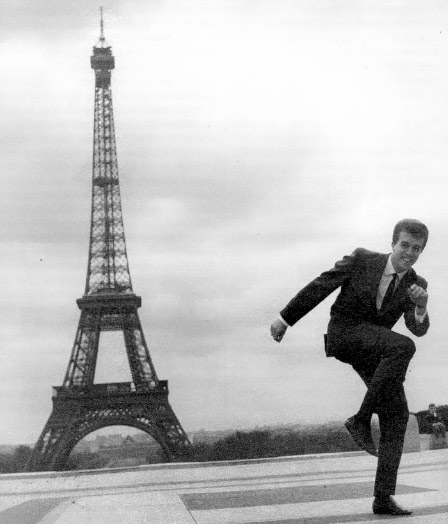2.
Rock and Roll comes to the Balkans
The first Rock ‘n Roll artists from America and the UK were released on Yugoslav labels in 1956, ushering in an era of push-and-pull between the youth of Yugoslavia and the generation already in power. The self-proclaimed mission of the adults who had fought to liberate Yugoslavia during the second world war was to ensure the proper education of the youth so that they could eventually replace them in government and in the continuation of the social-ideological project of socialist Yugoslavia. This mission was undertaken all the while with the insistence on the absence of any generational conflict.
The youth, on the other hand, were polled as believing that they were, in fact, ready to build upon the previous generation’s advances with their own cultural attitudes and predilections. Intergenerational conflict was, in fact, raising its head.
Karlo Metikoš, AKA Matt Collins
Metikoš was born in Zagreb in 1940 and became interested in Rock music after exposure to American acts like Elvis Presley, Bill Haley, Fats Domino, and Little Richard. Just one example of a generation of postwar Yugoslavs who participated in the worldwide trend of Rock ’n roll music, he primarily began his forays into the post-jazz craze by imitating what was already on offer in the English-speaking world.

Karlo Metikoš (Janjatović, 147)
Metikoš was a member of the band Regal, where he performed rock repertory for tourists in Adriatic resorts. He was convinced to move to Paris to perform, and relocated there in 1961, where he slept under bridges until he could get the chance to perform on American military bases. He was the unlikely pick to front French doo-wop band Les Chausettes, recording the Cascades’ Rhythm of the Rain in French (En écoutant la pluie). He began a solo career and was one of the first major touring acts in Yugoslavia. He released an EP with a cover of Peggy Sue and a Serbo-Croatian adaptation of Bob Dylan’s Dust in the Wind. Moving into electrified rock ‘n roll, in 1964 he formed the group Crveni Koralji (The Red Corals), with whom he wrote the first Yugoslav-authored single in English, “Don’t Say Goodbye.” The career of Collins/Metikoš is an early example of the wholehearted adoption of the worldwide youth movement begun by rockers in the U.S. and U.K. early in the history of postwar Yugoslavia.


